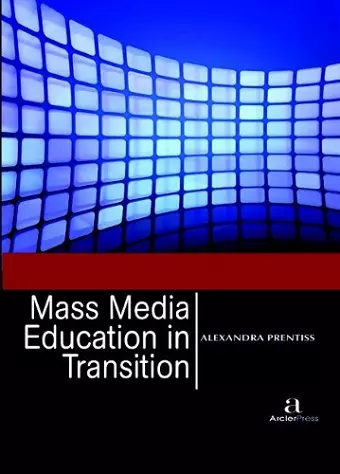Mass Media Education in Transition
Format:Hardback
Publisher:Arcler Education Inc
Published:30th Nov '16
Should be back in stock very soon

The leaps and bounds with which mass media has expanded in the past several decades has necessitated a fundamental change in the way in which media professionals are educated. The lines between media studies and other disciplines in the communications sphere have become blurred, and traditional mass media education has increasingly come under scrutiny for its current and future relevance.
Mass media education is in a period of transition, not all at once in a single form, but in manifold ways across the globe. As such, it is expedient to investigate the phenomenon on a macro level, highlighting the general challenges faced, as well as at the micro level, focusing on different examples of change in various contexts. Journalism and mass media are evolving to meet the ever-changing demands of a quickly shifting media landscape and global audience. If education cannot evolve to meet these rapid changes, the future of media professionals is at stake. Some of the issues, central to this transition across countries and cultures, are advances in technology, integrating journalism and media education into interdisciplinary studies, choosing to study media and communications, paradigmatic shifts in news production and consumption, and language considerations in a global news economy. While the role of media products is often overlooked, the lifecycle of the tools media professionals must use, from hardware to software, is nonetheless important in 21st century media education. An overview of these topics will be covered in the first section of this book, Mass Media Education in Transition. A more detailed look at these topics will be offered in the form of case studies from such disparate geographical regions as Kenya, Kazakhstan, Latin America, Spain, and the former communist countries of Central and Eastern Europe; these case studies are considered in the context of the broader perspective of mass media education in transition. As globalization, in addition to advances in information technology, is the primary reason for the shifts in journalism, and thus in media education, it is only natural that an assortment of geographical contexts will be featured. This will comprise the second section of this volume, Global Case Studies. In the final section, Facing New Challenges, this book will discuss the tension between citizen and professional journalism, between public opinion...
ISBN: 9781680945034
Dimensions: unknown
Weight: unknown
276 pages